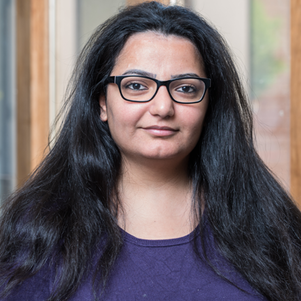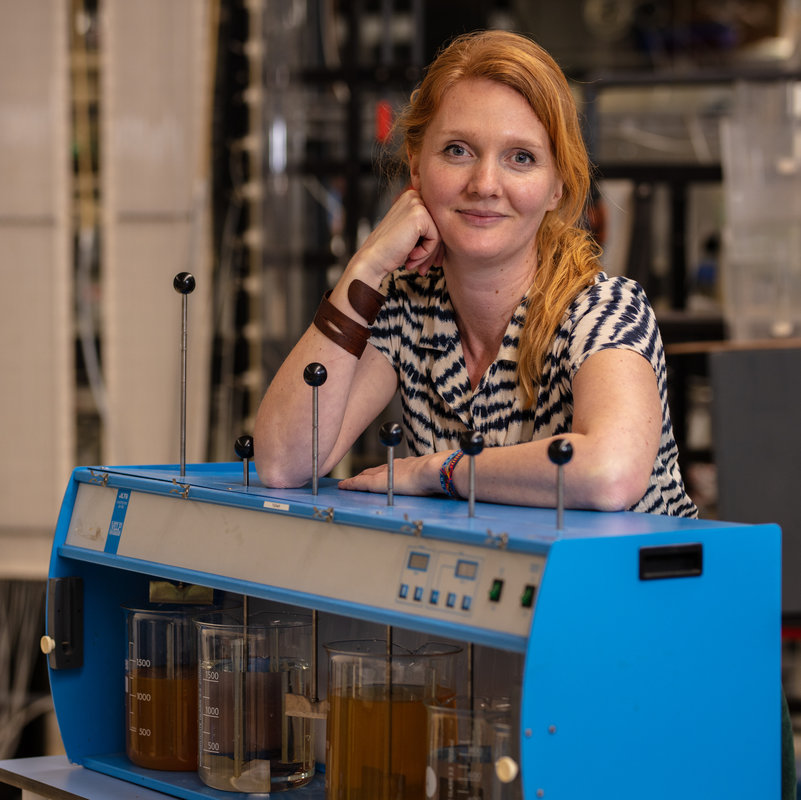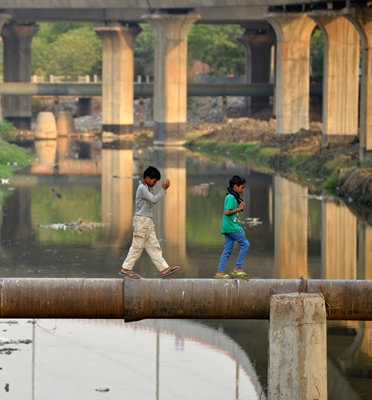Cheap and easy to do
Soliman studies the ceramic pot filters as they are being used in rural villages in Nicaragua. She has just returned from the Latin-American country, where she visited the villages and the local pot factory. “We are trying to find a way to enhance virus removal within the context of its current production. To find a way that is cheap and so that users can easily do it themselves.”
Especially this last concern is important for Soliman and Van Halem. “We often get the question; why not just use chlorine to disinfect viruses? Or why not use UV light? But if you visit these places you will see people already have a lot to do. Putting the water in the filter -before using it- is already an extra effort. So when you add extra steps to this process people generally end up not doing it at all. For example, the area where we work has no schools, so I see children who have to bike two hours back and forth to go to school. This doesn’t leave a lot of time for extra chores. You have to understand the lives of the users and the cultural context you are dealing with.”
The unexpected aspects of fieldwork
Doing fieldwork goes beyond just the science aspect itself, Soliman experiences first-hand. “My work is on the technology, but when you go on the ground and try to collaborate a lot of other issues appear. Politics, bureaucracy, cultural barriers, you name it.” It can be hard to collect data on the effectiveness of the filters when people give socially desirable answers. “When people say they have been cleaning the filter while this isn’t so, data interpretation can become a challenge. Or instead, when they clean it because they know we are visiting. This complicates our knowledge on the actual practices which can help improve the water quality.”
To assist in countering these issues they work closely together with local NGOs that focus on spreading awareness on the use of the water filter, such as World Vision and Agua Para La Vida. “Our collaboration is not only aiming at NGOs, we are also in contact with universities and research centers. We were asked to teach them how to do virus analysis in the existing water systems. Normally teaching other researchers is not part of my PhD, but it has become a part of the project.”
A time-sensitive operation
There are also practical issues that arise when doing research in Nicaragua. A major challenge is that researching the biological properties of water is a time sensitive operation. “Our samples are altered after 24 hours, so I cannot take them back to the Netherlands. I have to analyze them there. It’s a three-hour drive from the village, where I take the samples, to the lab. One evening we got back after the lab had closed. So I had to pull some tricks and build a makeshift lab in my hotel room to analyze the water samples there. I had to make an incubator from a foam box pizza container!” Luckily, Soliman has a great team that understands the challenges of developing research to support her in these instances.
The ultimate filter
The coming years Soliman will spend a lot of time doing research in Nicaragua, determined to find the ultimate ceramic pot filter for clean, virus-free drinking water. “Sometimes you feel you have to come up with some kind of magic trick. We need something that is going to work, that is cheap, that works in different situations and that will function long-term. It is hard, but it is also beautiful, because you know that you will actually make a change in people’s daily lives and health.”
Co-workers:
Doris van Halem, Gertjan Medema
TU Delft | Global Research Fellowship
Global Challenges:
Access to clean drinking water
High-tech Science:
Virus inactivation pathways, metal nanoparticles, biofilm in filter
Co-Creation: Agua Para La Vida, World Vision, Piensa, Autoridad Nacional del Agua (ANA), local universities; CISA; UNAN-León.



